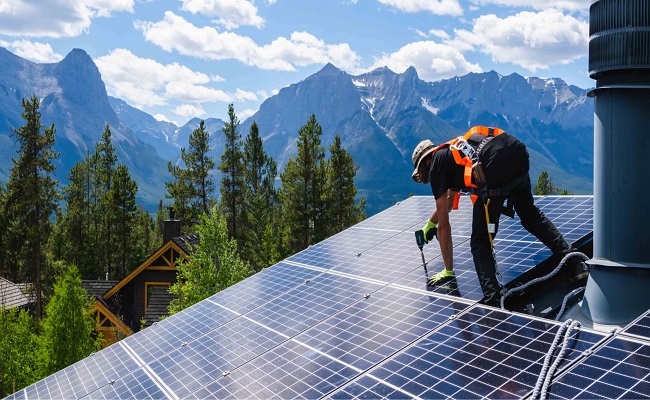The decision to install solar panels on a home is significant, and it often hinges on a crucial question: Are solar panels worth the cost for homes? Solar panels have gained popularity recently as an environmentally friendly and potentially cost-effective way to generate electricity. However, the upfront costs and long-term benefits of solar panels vary widely relying on various factors, including location, incentives, and individual energy consumption patterns. We will explore the various aspects of this question, weighing the advantages and disadvantages of investing in residential solar panels.
The Financial Consideration: Upfront Costs and Long-Term Savings
One of the most compelling reasons homeowners regard solar panels is their potential to save money on energy bills in the long run. Solar panels harness energy from the sun, converting it into electricity that can power a home. This renewable energy source can significantly reduce or even eliminate a household's reliance on the grid, lowering monthly electricity bills. Over the period, the savings on energy costs can offset the initial investment in solar panel installation, making them financially appealing.
Evaluating Upfront Costs and Return on Investment
Nevertheless, the expense of installing solar panels can be substantial. Homeowners must consider the upfront expenses for purchasing and installing the panels, which typically include the cost of the panels, inverters, mounting hardware, and labor. The total cost can deviate immensely based on the installation's size, the equipment's quality, and additional features such as battery storage systems.
Furthermore, the actual return on investment (ROI) from solar panels depends on several factors, including the solar panels' sunlight, local electricity rates, and available financial incentives. Solar panels offer a quicker payback period and more substantial long-term savings in regions with abundant sunshine and high electricity costs. In distinction, areas with less sun and lower electricity rates may require extended time to recoup the initial investment.
Financial Incentives and Rebates: Government Support for Solar Adoption
To evaluate the financial viability of solar panels for homes, it's paramount to regard government incentives and rebates. Many federal, state, and local governments propose financial incentives to encourage homeowners to adopt solar energy. These incentives can include tax credits, rebates, and net metering programs, which allow homeowners to sell excess electricity back to the grid. These incentives can significantly reduce the upfront solar panel installation costs and accelerate the ROI.
Increasing Property Value: Solar Panels and Home Resale
Another factor to regard is the impact of solar panels on the resale value of a home. Numerous studies have exhibited that homes with solar panels sell faster and at higher prices than those without. Buyers are frequently willing to pay a premium for a property with lower energy bills and a reduced carbon footprint. Consequently, homeowners who intend to sell their homes in the future may discover that the investment in solar panels pays off in reduced energy costs and increased property value.
Environmental Responsibility: Contributing to a Sustainable Future
Further, the environmental advantages of solar panels cannot be exaggerated. Solar energy is a clean, renewable source of power that assembles no greenhouse gas emissions or air pollutants. Homeowners can immensely reduce their carbon footprint by installing solar panels and contributing to a more sustainable future. For those who prioritize environmental responsibility, the environmental benefits alone can make solar panels a worthwhile investment, even if the financial returns are not immediate.
Low Maintenance and Longevity: A Durable Investment
Maintenance and durability are also important considerations. Solar panels are comprehended for their low maintenance requirements. Typically, they only need occasional cleaning and routine inspections to ensure they function correctly. Most reputable solar panel manufacturers offer warranties ranging from 20 to 25 years, providing homeowners with peace of mind that their investment is protected. This longevity contributes to the overall cost-effectiveness of solar panels, as they can continue to generate electricity for decades.
Whether solar panels are worth home costs is not a one-size-fits-all answer. It depends on various factors, including geographical location, financial incentives, energy consumption patterns, and personal priorities. Solar panels offer numerous benefits, including long-term energy cost savings, increased property value, environmental sustainability, and low maintenance requirements. Nevertheless, the upfront costs and the time it takes to recoup the investment can be significant barriers for some homeowners. To make an informed decision, homeowners should carefully assess their unique circumstances and consider consulting with solar panel experts who can provide personalized guidance based on their needs and goals. For many homeowners, investing in solar panels represents a commitment to a more sustainable and energy-efficient future. If you're interested in exploring the possibility of free solar panels in NV - explained by EcoGen America, it's essential to contact them for detailed information and eligibility criteria.
